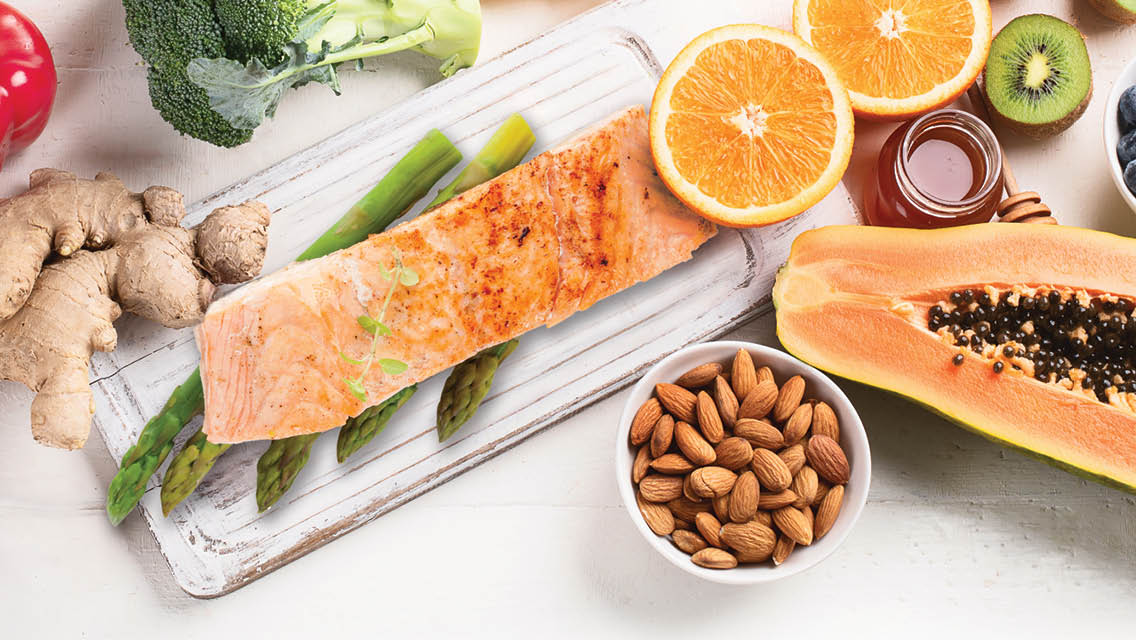Eating more plants and less sugar, while avoiding processed foods and beverages, is the foundation of all cancer-fighting diets. From there, the best approach is the one that works best for you.
So how do you know what that is? When you try a new anticancer food protocol, work with your healthcare provider to test your inflammation and blood-sugar levels after a few weeks. When your blood sugar and fasting insulin are well controlled and your inflammatory markers are low, you’ve likely found an effective food plan.
You can also use your current health status or treatment protocol as a guide. You might generally eat an anti-inflammatory diet, for example, but if you enter active treatment and your platelets are low, you might want to temporarily kick up the sesame oil and tahini, both high in inflammatory omega-6 fats, to help the platelets recover.
These are three of the top nutrition protocols you can use to prevent and heal from cancer.
Vegan
• What it is: A 100 percent plant-based diet that eliminates meat, dairy, and honey.
• Benefits: Plants and more plants supply a load of phytonutrients, antioxidants, and fiber.
• Challenges: Blood sugar can be harder for some to control on a vegan diet. It’s critical to get enough healthy fats for blood-sugar regulation and to avoid processed foods like faux meats.
Paleo
• What it is: A nutrition protocol that focuses on grassfed meats and wild-caught fish, high-quality fats and oils, and as many plants as you can eat; avoids dairy, cereal grains, legumes, potatoes, and refined sugar.
• Benefits: A diet rich in healthy fats and lean protein helps keep blood sugar under control. The omega-3 fats in grassfed meat and coldwater fish like salmon are anti-inflammatory. The absence of sugar keeps insulin well-regulated.
• Challenges: There’s a tendency to overconsume meat and neglect vegetables. Consuming meat from factory-farmed animals, which contains fewer omega-3s and more omega-6s, can promote inflammation. Healthful paleo eating means sticking with grassfed and wild-caught protein, in modest amounts.
Ketogenic
• What it is: A metabolic therapy that requires getting 75 to 80 percent of daily calories from fat, 10 to 15 percent from protein, and 5 to 10 percent from carbohydrates. Periods of fasting also boost nutritional ketosis, a state in which your body burns fat for energy.
• Benefits: Tightly restricting glucose while increasing fat intake forces the body to switch from burning glucose to burning fat; this improves mitochondrial health and puts stress on tumor cells. (Fasting also puts stress on tumor cells.)
• Challenges: It’s hard to eat so much fat and so few carbs. If you decide to adopt a full ketogenic protocol, it’s best done under the care of an experienced health practitioner. And if you do not have cancer, most researchers advocate avoiding prolonged periods of ketosis, as it can lead to phytonutrient deficiencies. “It may be good to go in and out of nutritional ketosis for general health and cancer prevention, but it may not be optimal for those using it for clinical management of existing disease,” says Dominic D’Agostino, PhD, assistant professor in the Department of Molecular Pharmacology and Physiology at the University of South Florida. He suggests intermittent fasting and low-glycemic-index diets as a good alternative.
This originally appeared in “Whole-Person Cancer Care” in the November 2017 print issue of Experience Life.




This Post Has 0 Comments